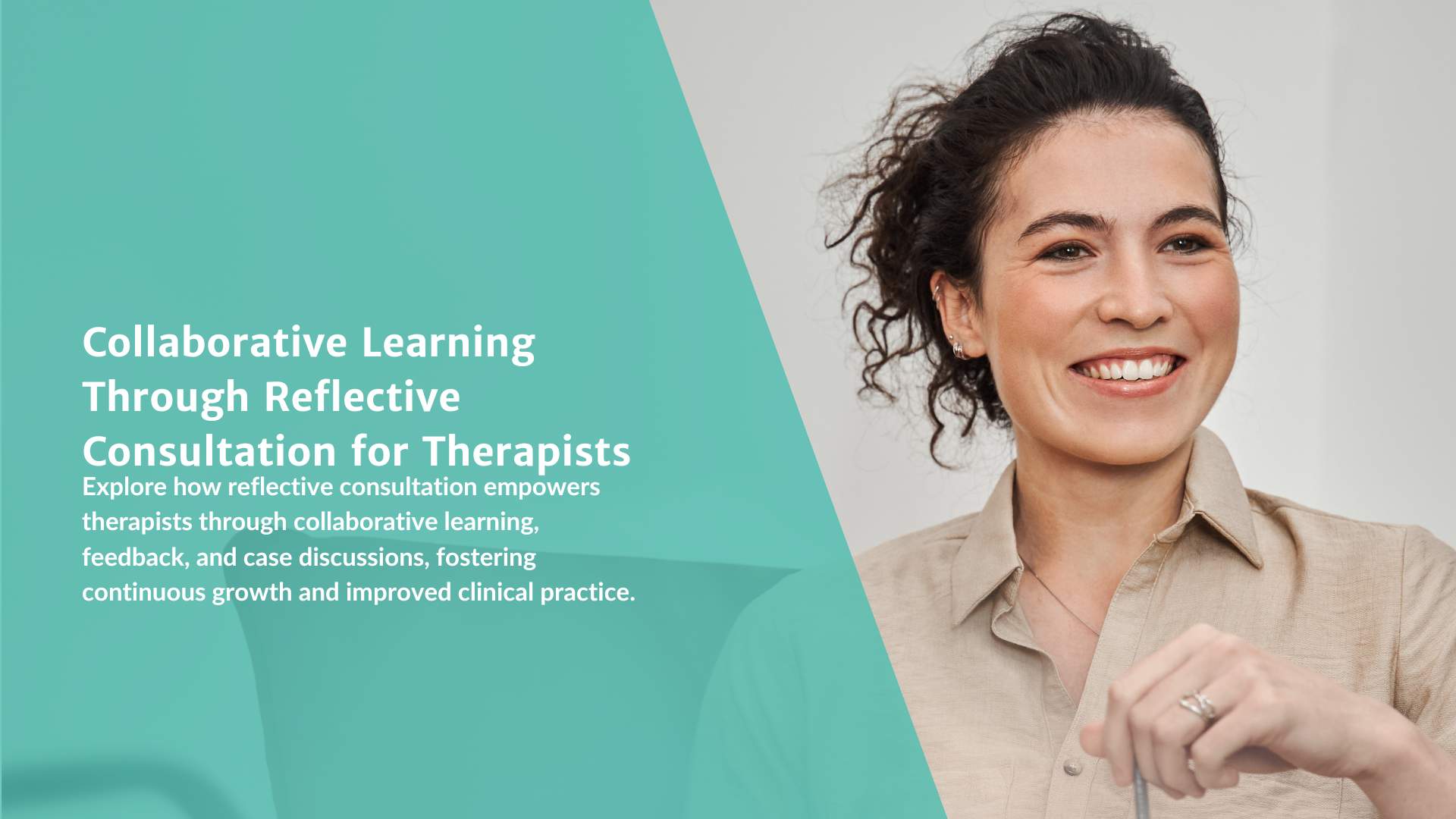As a therapist, who do you turn to for guidance and support? You’re dedicated to helping others navigate their mental health, but it’s equally important to have space for your own professional growth. Reflective consultation is a powerful way to engage in collaborative learning, gain feedback, and sharpen your skills in a supportive environment. In this article, we’ll explore why reflective consultation is essential in clinical supervision, how it enhances therapeutic practices, and how it fosters a culture of continuous learning for therapists like you.
What is Reflective Consultation?
Reflective consultation gives you, as a therapist, the space to thoughtfully examine your clinical work in a supportive and collaborative setting. However, it’s not about being critiqued; it’s about engaging in a professional dialogue that encourages you to reflect on your choices, emotional reactions, and therapeutic strategies.
This process helps you deepen your clinical skills, uncover areas for growth, and build on your strengths, all while keeping the well-being of your clients front and center. Reflective consultation empowers you to become more self-aware and intentional in your practice, leading to more effective and compassionate care.
The Importance of Collaborative Learning for Therapists
Therapy is all about relationships, and collaborative learning can greatly enhance your ability to connect with and support your clients. Reflective consultation offers a unique opportunity to learn from peers and supervisors, sharing insights that deepen your understanding of complex cases. It’s a reminder that no single therapist has all the answers. Hence, it allows you to grow and refine your skills together. Here are some key benefits of engaging in collaborative learning:
- Gain Diverse Perspectives: Case discussions in reflective consultation expose you to different viewpoints, helping you consider new angles and solutions for client care.
- Strengthen Problem-Solving Skills: Collaborative learning encourages you to think critically about challenging cases, developing strategies that you might not have explored alone.
- Enhance Therapeutic Language: Engaging with peers allows you to refine how you communicate, ensuring that your therapeutic language is effective, clear, and supportive.
- Build Trust and Mutual Respect: Collaborative environments foster a culture of trust, where learning is based on shared experiences and professional respect.
- Develop New Approaches: Reflective consultation can introduce you to fresh techniques and methods, allowing you to adapt your clinical skills to better meet the needs of your clients.
Gaining Feedback to Enhance Practice
One of the core benefits of reflective consultation is the chance for you to receive constructive feedback on your work. Feedback is essential for growth, and in this type of consultation, it’s offered in a supportive and non-judgmental way. Whether the feedback focuses on your therapeutic techniques, communication style, or case management strategies, you can use it to elevate your clinical practice.
Constructive feedback helps you identify areas where adjustments might be needed or where you could explore new approaches. For example, you might receive guidance on managing transference more effectively or implementing stronger cognitive-behavioral interventions. This kind of input enables you to make meaningful improvements, leading to more positive outcomes for your clients.
Additionally, feedback in reflective consultation goes beyond technical skills. It also addresses emotional and interpersonal dynamics, helping you become more aware of how your own feelings and reactions may impact your work with clients. This self-awareness is crucial for preventing burnout and ensuring that you continue to provide compassionate, effective care.
Enhancing Case Discussions and Therapeutic Language
Case discussions are at the heart of reflective consultation, giving you a space to delve into complex or challenging cases with greater depth. These sessions offer the opportunity to share concerns, ask questions, and seek guidance from your peers and supervisors. This collaborative atmosphere encourages openness and curiosity, making it easier for you to admit uncertainties and explore different perspectives.
Participating in reflective consultation can also refine your therapeutic language, helping you communicate more clearly and empathetically with clients. Articulating emotions, thoughts, and goals in a way that resonates is key to establishing strong therapeutic relationships. Collaborative case discussions provide insights into how you can frame conversations in ways that foster healing and understanding.
Reflective consultation goes further by encouraging you to critically examine the language you use in therapy sessions. It’s a chance to reflect on how your words and actions affect your clients, allowing you to adjust your communication to be more inclusive, supportive, and culturally sensitive. This heightened awareness can lead to more impactful and meaningful interactions with those you support.
Reflective Consultation as a Tool for Continuous Learning
In the ever-changing field of mental health, staying updated with the latest techniques and approaches is crucial. Reflective consultation is a powerful way for you to engage in continuous learning, keeping your curiosity alive and your practice fresh.
By participating in these collaborative sessions, you’re exposed to a range of perspectives and clinical strategies that broaden your understanding. This exchange of ideas not only keeps you engaged in your work but also prevents your practice from becoming stagnant, fostering ongoing professional growth. Reflective consultation helps you remain adaptable, which is key to meeting the diverse needs of your clients.
If you’re passionate about your work, reflective consultation offers a chance to deepen your skills while preserving your emotional health. Regularly engaging in these reflective practices can help you manage the emotional demands of your profession, reducing the risk of burnout and compassion fatigue, so you can continue to provide the highest quality care.
The Role of Reflective Consultation in Clinical Supervision
Reflective consultation is a key part of clinical supervision, giving you a structured space to reflect on your practice and receive guidance from experienced supervisors. Unlike traditional supervision, which often focuses on ethics and skills, reflective consultation encourages deeper self-exploration. This helps you understand how your personal experiences and biases might influence your work, leading to more compassionate and culturally sensitive care.
For instance, you might notice that your own discomfort with conflict affects how you handle challenging client interactions. Reflective consultation offers a safe space to unpack those feelings and develop new strategies. Or, you might find that working with trauma survivors has left you emotionally drained. In consultation, you can discuss ways to manage that emotional load while still supporting your clients effectively.
Conclusion: The Value of Reflective Consultation for Therapists
Reflective consultation is a powerful way to sharpen your skills, deepen your understanding, and stay connected in your therapeutic work. It keeps you engaged, growing, and ready to offer the best care possible. At Mente Counseling, we provide supportive consultation tailored to your professional needs. Reach out today to see how we can help you thrive in your practice.
FAQs
What is a reflective consultation?
Why is reflection important for therapists?
Reflection is crucial for therapists because it promotes self-awareness and continuous learning. By reflecting on their experiences, therapists can better understand how their personal biases, emotions, and reactions impact their practice. Reflection also helps therapists improve their communication, adapt therapeutic approaches, and maintain their mental health, ensuring they provide the highest quality care to their clients.
What is an example of reflective supervision?
What is the biggest barrier to reflective practice?

